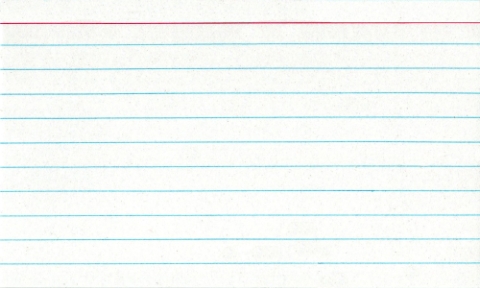“Some people expend tremendous energy merely to be normal.”
(Blanche Balait, as recorded by Albert Camus)
One of the things you’re supposed to discover about yourself at university is whether or not you’re inclined towards research and, of course, whether you have an aptitude for it. Not everyone is cut out for a professorship, and that’s no shame on anyone. People go through years and years of schooling and then, at some point, many of them leave school to go into business, or politics, or entertainment, or some other racket. It makes sense to have “elite” schools, like Harvard and Princeton, Cambridge and Oxford, where exceptionally high-achieving high-school students go to get a(n even) higher education.
But once there, it would be really surprising if all of them turn out have the intelligence and curiosity to impress “academically” — to become “scientists”. Indeed, it also makes sense to have less elite universities, where people who didn’t do quite as well in high-school can go and, again, try to impress their academic teachers. If the elite schools provide a path for straight-A high school students through an Ivy League BA, to a top law school and into the legal profession, the less elite schools provide a path for a B-student in high school, through a public university, a master’s degree somewhat higher up the ladder and, finally, a PhD at those elite institutions. That’s because what it takes to succeed in academia isn’t exactly the same thing as a what it takes to succeed in high school. Different norms apply.
I’m focusing on academic outcomes here, but they are of course affected by extracurricular distractions. The important thing is to have a system that actually registers the students’ relative success at meeting the specifically academic standard at a particular point of their life path. At some point, the student runs into a limitation. Having received easy As in math all her life, she suddenly finds herself getting Bs in advanced statistics. This should not be a tragedy for her; she’s just learning what she’s good at. Having struggled for his Cs in high school English, he suddenly discovers he’s able to earn As in philosophy. This isn’t an indictment of high-school English. It’s just, again, an exposure to a different set of norms.
What about the curve? I don’t think there’s anything wrong with the idea of meaningfully graduating at the “top of your class”, i.e., of letting academic achievement be relative to your cohort, not some Platonic ideal grasp of a subject matter. And most people in most classes really should be satisfied with the Bs and Cs that are available to them after all the well-deserved As have been given out to people with abnormal intelligence or curiosity, and the well-deserved Ds and Fs have been assigned to those who need to find other things to do (or learn to show up to the courses they have enrolled in).
My point is that there are enough different kinds of “normal” out there for everyone to be normal in some ways, exceptional in others. Grading gives students an opportunity to find out exactly where and how they are normal. Sure, some will still make the tragic effort to be normal (or brilliant) in an area they are simply not normal (or brilliant) in. They may be trying to impress their parents, for example, or embarrass them. The truly sad cases, I guess, are those who pretend to be average where they are really brilliant.
We should remember that any effort we make risks being wasted. There should be vast regions of normalcy out there that most people, in most of their activities, can enjoy effortlessly. Being yourself should by and large be easy. Our opposition to “normal distribution” is really a demand for uniqueness. We are asking everyone to be unique in every way. And we then ask our already beleaguered faculty to grade these singularities by way of an assessment of the “whole person”. Can’t we see how impossible we’re making things for ourselves? Just assign those damn 5-paragraph essays, I say. Tell the students there are such things as good and bad writing, greater or lesser ignorance. Then spend the ten or fifteen minutes per paper it will take to distribute their efforts under a normal curve. These “whole people” will be fine knowing only how well they did relative to each other in the art of composing themselves into five, more or less coherent, more or less intelligent, more or less knowledgeable, paragraphs. If they seek you out for more detailed feedback, go ahead; give it to them.
Even the most brilliant people are, for the most part, normal. We have to make that part easy for them so that they can devote their exceptional energies to making the occasional scientific discovery. These days, I fear, our scientists are working way too hard just to be normal — writing grant applications and journal articles, not to mention teaching and examining their students in ever more “progressive” ways. They’re going at it all wrong, in my opinion. It probably started when they were undergraduates.
_________
*This is an edited version of a post I wrote ten years ago at my old blog inspired by a post by Andrew Gelman on grade inflation.
